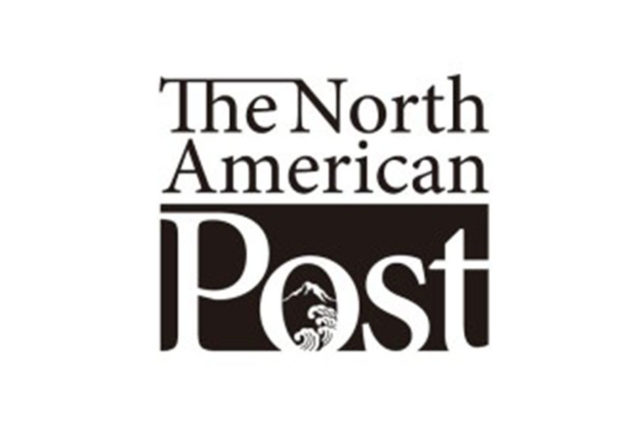U.S. Concentration Camps for Refugees
By Yukio Tazuma
For The North American Post
Give me your tired, your poor, Your huddled masses yearning to breathe free, The wretched refuse of your teeming shore, Send these, the homeless, tempest-tossed to me, I lift my lamp beside the golden door.” (Inscription on the Statue of Liberty, by Emma Lazarus)
In 2014, U.S. Supreme Court Justice Antonin Scalia said the internment of Japanese-Americans during World War II was wrong, but something similar could easily happen during a future conflict. He also cited a Latin expression meaning, “In times of war, the laws fall silent.”
Scalia told students and faculty of the University of Hawaii “…you are kidding yourself if you think the same thing will not happen again…That’s what was going on – the panic about the war and the invasion of the Pacific and whatnot. That’s what happens. It was wrong, but I would not be surprised to see it happen again, in time of war. It’s no justification, but it is the reality,” according to the Associated Press.
Back in 1942, ethic Japanese (Nikkei) were forced out of the West Coast. This action was planned by John McCloy, Assistant Secretary of War under Secretary of War Henry Stimson. McCloy managed it with E.O. 9066, signed by President Franklin Roosevelt. It ultimately incarcerated 120,000 Nikkei into U.S. Concentration Camps. U.S. Attorney General Francis Biddle opposed it saying it was infringing on the Nikkei’s civil rights. McCloy replied, “…the Constitution is just a scrap of paper to me.” He was correct, laws can be ignored by powerful influence. Unless those in power enforce the Constitution, its provisions are just “paper protection,” as James Madison said in pressing for the Bill of Rights in 1789. Biddle, then conceded, approving the order to his later regret. In a 1944 suit, the Supreme Court recognized the right of the Army to order the exclusion of Nikkei from military areas. The only exception was Justice Hugo Black, who dissented, saying that the principle of racial discrimination in an emergency is a “loaded weapon ready for the hand of any authority that can bring forward a plausible claim of an urgent need.”
This November, Paris suffered horrific terrorist attacks that killed 130 people and injured 368. Islamic State of Iraq and the Levant (ISIL) claimed responsibility for the attacks. French President François Hollande said the attack was “an act of war,” planned in Syria. Europeans re-evaluated their policy toward refugees fleeing terrorism. Anti-Islamic feelings prevailed. Borders were tightened or closed.
The U.S. reacted to the Paris attack. Republican Presidential candidates proposed closing U.S. mosques, and Donald Trump, not to be outdone, said he would monitor all Muslims. Roanoke Virginia Mayor David Bowers (D) stated on Nov. 18, “…I am convinced that is…imprudent to assist…Syrian refugees to…Virginia…I’m reminded that President Franklin D. Roosevelt felt compelled to sequester Japanese…after the bombing of Pearl Harbor, and it appears that the threat of harm to America from Isis now is just as real and serious as that from our enemies then.” (He later apologized for his misleading remarks.) Similar statements were made by Tennessee State Representative Glen Casada (R), and Rhode Island State Senator Elaine Morgan (R). And, 30 Republican and one Democratic governors declared their state borders closed to refugees. (States have no say in this matter.) The U.S. House of Representatives passed a bill to stop any more Syrian and Iraqi refugees fleeing violence from resettling in the U.S. (Without U.S. Senate concurrence, and Presidential signing, it will not pass.) After the signing of the Civil Liberties Act of 1988 by President Ronald Reagan, the U.S. government formally apologized and approved reparations to all surviving Nikkei unlawfully incarcerated during World War II. In 1990, President George H.W. Bush began awarding the redress payments.
The dean of the University of Hawaii law school, Avi Soifer said he believed Justice Scalia was suggesting Americans always be vigilant and that the law alone can’t be trusted to provide protection. “We do need a court that sometimes will say there are individual or group rights that are not being adequately protected by the democratic process,” he said. As Bruce Ackerman, Yale professor of law and political science, said “It should not allow the prevailing panic to create a system that threatens, over time, to destroy the basic freedoms that distinguish the West from its ideological competitors.” Even France, showing tremendous compassion, has declared its commitment to continue accepting Syrian refugees.
As for the U.S., in paraphrasing Robert Orben – aliens have always been a problem in the United States. Pocahontas, Sitting Bull or Tonto might say: “Tell me about it, Columbus.”
Editor’s Note:
Yukio Tazuma was born in Seattle and has lived in the Puget Sound region almost all of his life, except for the three years he was confined in the Minidoka concentration camp in Idaho with other Japanese Americans during World War II. Before his retirement, he worked as a graphic artist at The Boeing Co. He can be reached at ydentsuma@gmail.com







